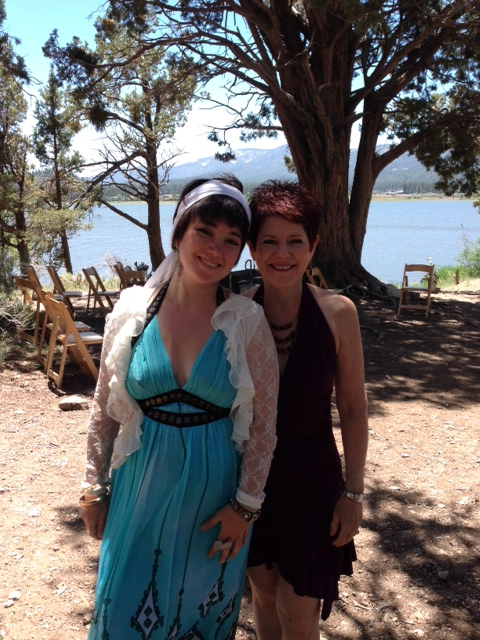Jonathan Cloud November 16th, 2014
What I’ve gotten out of Landmark
 Like a lot of Landmark graduates, I can genuinely say that I’ve gotten much of my life from my participation in the programs. I was introduced to the programs by the woman I am now married to, after having walked out of an introduction session because I considered it to be total hype and completely implausible. This was in 1985, shortly after the transformation of the est training into the Forum (now called the Landmark Forum), in Canada.
Like a lot of Landmark graduates, I can genuinely say that I’ve gotten much of my life from my participation in the programs. I was introduced to the programs by the woman I am now married to, after having walked out of an introduction session because I considered it to be total hype and completely implausible. This was in 1985, shortly after the transformation of the est training into the Forum (now called the Landmark Forum), in Canada.
My first course was actually the Communication Workshop (now retired), which had a profound and immediate effect on me. I was 41 years old, and had already done an enormous amount in my life, including living in several countries, earning a Commonwealth Scholarship in New Zealand, moving to Toronto and then to Ottawa to work for the Canadian federal government, spending a year in Paris and visiting Israel and Gaza, and returning to Ottawa and starting a passive solar design and construction business, building houses, and moving into real estate development. I had refused to attend the Forum, but I was willing to consider that I might learn something from a course on communication, since I was having trouble keeping my thirty-five employees on track in the construction business. After four years in business I was already a half-million dollars in the hole. That the course was being led by a Montreal real estate developer also appealed to me. But I was still skeptical that this might be some kind of Scientology scam, which I’d already encountered though not fallen prey to.
Unless you’ve done some kind of transformational program such as est, Landmark, Actualizations, LifeSpring, etc. I can pretty much guarantee that you have no idea of what’s possible. In the course of as little as a weekend, your entire world view is exposed as a fabrication, a fabrication you put together in response to whatever incidents happened to occur in your childhood, and how you chose to interpret them at the time. The experience is shattering, but also enormously freeing: you see who you have become, and have the opportunity to choose newly.
Continue Reading »
Jonathan Cloud November 15th, 2014
Along with many other graduates, I believe it’s important for all of us to be aware of our ecological footprint on the Earth, and set an example of social responsibility. I am interested in exploring the possibility of a project to “green” Landmark’s South Plainfield center, find out whether other centers are having similar conversations, and discuss this question with the organization.
Some of the possibilities are:
- Developing an effective recycling program
- Analyzing the ecological footprint of the operation
- Conserving energy
- Minimizing waste
- Engaging staff and volunteers in designing ecological ways of conducting Landmark’s programs
- Creating an ongoing “customer feedback group” for the Center
- Exploring opportunities with the owner and facilities manager for the building and the complex, such solar canopies and/or rooftop arrays, motion sensor lighting in bathrooms, etc.)
Continue Reading »
Jonathan Cloud November 15th, 2014
Biodiversity for a Livable Climate was founded in 2013 by Jim Laurie, Karl Thidemann, Helen D. Silver, Jane Hammer and Adam Sacks. We saw an urgent need to expand the climate conversation to include the seriously underestimated positive impacts of the biosphere on the climate and physical world. We see how appropriate human approaches to nature may be able to reverse the effects of global warming despite our inability to date to reduce emissions in a timely manner. Our goal is to contribute to planetary regeneration through research, education, collaboration and action to restore essential global biodiversity.
https://www.facebook.com/bio4climate
http://bio4climate.org
Continue Reading »
Jonathan Cloud November 14th, 2014
Attempt to classify, display, and keep track of everything I write or make notes on…
Jonathan Cloud August 7th, 2014
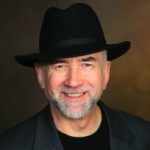 The challenges we face in New Jersey as a result of climate change are significant, and so therefore are the opportunities. The experience of Superstorm Sandy showed us just how ill-prepared we are for the more frequent recurrence of extreme weather; and how important it is that we set an example for taking action to mitigate our own greenhouse gas emissions, as other states are doing around us. And there’s also no doubt about the urgency of it — as you can see from this remarkable video:
The challenges we face in New Jersey as a result of climate change are significant, and so therefore are the opportunities. The experience of Superstorm Sandy showed us just how ill-prepared we are for the more frequent recurrence of extreme weather; and how important it is that we set an example for taking action to mitigate our own greenhouse gas emissions, as other states are doing around us. And there’s also no doubt about the urgency of it — as you can see from this remarkable video:
Continue Reading »
Jonathan Cloud August 5th, 2014
See it live at http://NJPACE.CauseVox.com.
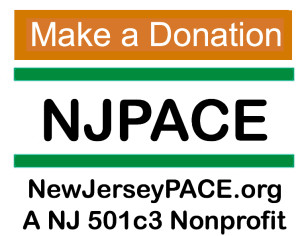 Developing our crowdfunding campaign is giving us an extraordinary opportunity to explore using PACE to revitalize New Jersey communities. By itself, PACE is an innovative business model that creates jobs and economic development while providing the ultimate tool to finance energy efficiency and renewable energy projects on private properties. But leveraging PACE for community development is where the real payoff is, that is to say, for the benefit of the community as a whole.
Developing our crowdfunding campaign is giving us an extraordinary opportunity to explore using PACE to revitalize New Jersey communities. By itself, PACE is an innovative business model that creates jobs and economic development while providing the ultimate tool to finance energy efficiency and renewable energy projects on private properties. But leveraging PACE for community development is where the real payoff is, that is to say, for the benefit of the community as a whole.
Continue Reading »
Jonathan Cloud February 23rd, 2014
Diary of the Future — February 23, 2014
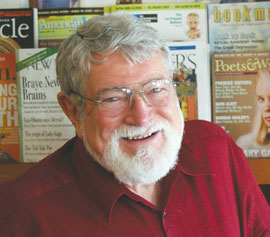
Unless people of good will join in common cause to build a truly democratic world that works for all, we will find ourselves living in a world that works for no one. —David Korten (2000)
There is a sense in which we already find ourselves living in “a world that works for no one”: not the rich, and certainly not the poor; not the believer or the agnostic, not the Ph.D. or the high school drop-out, not the pop celebrity or the homeless veteran still suffering from PTSD. It’s not just that the rich are as depressed, confused, and cynical as the rest of us, which is certainly true in many cases; or that the world we live in seems to be unravelling in a dozen different ways, which has certainly been the case during all of our lifetimes. It’s that the world cannot work for anyone unless it at least begins to work for everyone.
Continue Reading »
Jonathan Cloud February 22nd, 2014
February 22, 2014: Climate disruption is becoming increasingly evident in our times. As we begin to thaw out from what has been a surprisingly cold and snowy winter, it seems almost comical to have to ask whether this is somehow connected with global warming. It is. The southward migration of the polar vortex, which we’ve all started hearing about, is partly caused by an upwelling of warm air in the Arctic, causing the center of the vortex to rise and the edges to spill outward. This doesn’t mean that global warming causes it, but only that it likely exacerbates it, continuing a changing pattern of weather events that taken together are what we mean by “climate change.”
[table colalign=”right|center|left”]
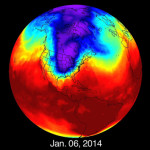
NASA Goddard Space Flight Center
,
—,”Of course this is not the first ‘Arctic winter’ to be experienced in the U.S., though it dropped record amounts of snow and broke all of the low temperature records set since the National Weather Service started keeping them in the 1870s. And the disturbance may well be linked to climate change. According to Phil Plait
writing in Slate (Feb 2014): “”warming water in the Arctic leads to ice loss which leads to more warm water. Some climate scientists think this may be disrupting the air flow in the polar vortex, which in turn leads to the meanders in the jet stream. This idea is pretty new and not yet verified. But the irony is clear: If these scientists turn out to be right, not only does the cold weather not disprove global warming, it may actually be caused by it.”””
[/table]
Continue Reading »
Jonathan Cloud September 20th, 2013
 Some Republicans in Congress are determined to “de-fund” Obamacare by holding the government’s entire budget hostage. I beg to differ from those in the Tea Party who are supporting this move.
Some Republicans in Congress are determined to “de-fund” Obamacare by holding the government’s entire budget hostage. I beg to differ from those in the Tea Party who are supporting this move.
Our personal story is that we have enjoyed company-supplied health care insurance up to the point where my wife got laid off in 2012, and since then have paid for COBRA at $1500 a month to maintain these benefits. This ends in November, and we fully intend to apply for insurance under the Affordable Care Act.
This name says a lot — it’s private insurance that is expected to be affordable and held to important consumer-protection standards. We haven’t signed up yet, and we’ll be the first to complain if the system does not work properly when it’s launched in October. But there are currently a lot of good software engineers and designers working for the federal government, and we’re expecting to see any kinks ironed out as soon as they’re discovered.
Continue Reading »
![]() Like a lot of Landmark graduates, I can genuinely say that I’ve gotten much of my life from my participation in the programs. I was introduced to the programs by the woman I am now married to, after having walked out of an introduction session because I considered it to be total hype and completely implausible. This was in 1985, shortly after the transformation of the est training into the Forum (now called the Landmark Forum), in Canada.
Like a lot of Landmark graduates, I can genuinely say that I’ve gotten much of my life from my participation in the programs. I was introduced to the programs by the woman I am now married to, after having walked out of an introduction session because I considered it to be total hype and completely implausible. This was in 1985, shortly after the transformation of the est training into the Forum (now called the Landmark Forum), in Canada.



